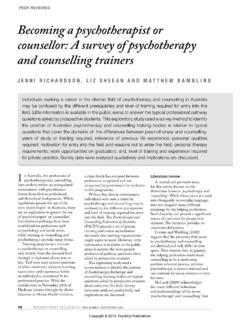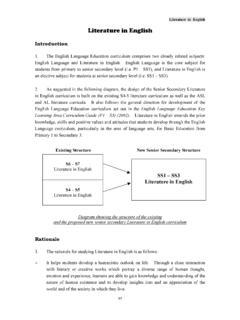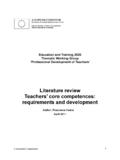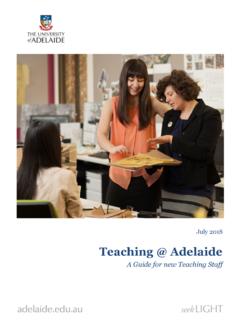Transcription of Cultural competence: on counselling difference - Psychoz
1 Interface: Considerations of DifferencePSYCHOTHERAPY IN AUSTRALIA VOL 14 NO 4 AUGUST 200863 Cultural competence : on counselling difference Australia is becoming an increasingly diverse multicultural nation where Australians of all different Cultural influences constitute our new reality. With these changes come the challenges not only for our country, but also for therapists and counsellors who will need to accommodate this change in their therapeutic work. Cultural diversity poses a challenge both to the therapist who provides the service and for the individual who is seeking counselling services. Relationships between the counsellor and the client must be supported and encouraged, as it is often assumed that migrants are not interested in mental health care or accessing psychotherapy.
2 The major issue is in the barriers to access, and a lack of consideration and practical effort to understand and recognise the different ways individuals of diverse backgrounds understand the concepts of mental health. While there is a move towards the provision of counsellors who can speak another language and have intercultural knowledge, it is important that Cultural competency is included in the training of mental health workers to be able to cater effectively to the needs of the culturally diverse client. One of the ways a counsellor could enhance their knowledge and skills is to first learn and appreciate the different stories, narratives, beliefs and attitudes that a client brings to the therapy room.
3 The goal of therapy is not to give them your best, but the goal of therapy is to give them their best. What do I mean? Listening to client narratives to understand their different world views and how they formulate their thoughts and behaviour as a result of these is vital so that the therapist can use this important information to restructure their existing views. One of the common mistakes therapists make is to try to restructure the client s views (whether positive or negative) and behaviours to fit that of mainstream perspectives. By doing this, we limit and prevent ourselves from gaining access to a different perspective from our own. But more importantly, we alienate the client by trying to take control of their lives.
4 Sometimes we can even surprise ourselves by observing how the client may look for answers from their own world view. They may find a way to get themselves out of difficulty because they utilised a tool that comes from within their own frame of reference. When we observe that in our conversations with our clients lie the answers to help them through their struggles and concerns, the skill of listening is quite important. One of my passions is to encourage a culturally-appropriate mental health care field. Culturally-appropriate counselling skills are essential for mental health workers who work with clients from different Cultural and linguistic backgrounds.
5 Respect for the diversity of cultures and values of the client are a precondition for successful mental health care in a heterogenous society. Furthermore, culturally-appropriate mental health care could aid in understanding the client s Cultural codes formed during socialisation and counsellors or mental health workers become aware of their own Cultural practices, they can become culturally competent with the ability and experience to perform culturally appropriate responsibilities. If a counsellor adheres to a specific method or theory of counselling and interventions, success in counselling will be limited. This is because many Cultural groups may not hold the same values and beliefs as the counsellor, so therefore do not contribute or share personal information in therapy.
6 Language is also another barrier to counselling individuals from diverse Cultural backgrounds and is probably the main reason why migrants do not readily access mental health care. A client may not fully express their thoughts and feelings to the counsellor due to the language barrier. Also, the potential for misdiagnosis and assessment is evident due to the misunderstanding between the counsellor and the client. Hence, the use of bilingual counsellors are important. Thus, it is important to: recognise Cultural diversity in Australia; understand the role that culture, ethnicity, race, religion and/or spirituality play in ethnic and culturally diverse populations; assist clients to understand and resolve their own Cultural /religious and spiritual identification on their attitudes and behaviour that are maladaptive or unhelpful to meet their needs; train future practitioners/therapists to be culturally competent to implement the best mental health care that can serve the needs of culturally diverse communities.
7 In mental health care we aim for the best outcome for the client, which is better mental health. There are multiple ways to reach this desired outcome. To maximise the results of interventions aimed towards better mental health outcomes, Cultural -competency in therapy is a vital issue for those involved in counselling . Hanan Dover , PGDip, MA (Hons), MAPS is a practicing psychologist who consults on religious and spiritual worldviews with individuals and organisations. She is an Executive member of the UWS Psychology and Spirituality Society, an Adjunct Lecturer and Postgraduate Psychology student at the UWS, President of Mission of Hope and the Australian Society of Islamic Psychology, an Executive member of the APS Psychology from an Islamic Perspective Interest Group, and is on the Board of the International Association of Muslim Psychologists and the National Committee for the Centre of Excellence of Islamic Studies.
8






